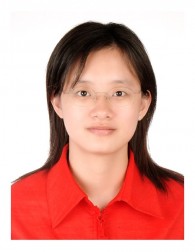:::-People
Cybersecurity Research Center, National Taipei University of Technology
Research Institute
Cybersecurity Research Center, National Taipei University of Technology
Director
Shih-Hsuan Yang, Prof. and Vice President
Research Project
Security Protection and Resilience Enhancement of Low Earth Orbit Satellite Communication Systems: Security Architecture, Anomaly and Misinformation Detection, Privacy Enhancement, and Redundancy Technologies
Abstract
Low Earth Orbit (LEO) satellites offer advantages such as low latency and wide coverage, making them increasingly critical in global network services. However, LEO satellite systems face various cybersecurity challenges, including signal interference, data leakage or tampering, and control hijacking. In previous phases of the project, the team developed several key technologies, including an intelligent LEO satellite network transmission simulation platform, a multi-path transmission mechanism in collaboration with LEO satellites, a zero-knowledge proof framework based on lookup arguments, and a message authenticity classification method combining content analysis with user behavior characteristics. Sub-project 1 proposes a satellite cybersecurity simulation platform that integrates federated learning, zero-trust management, and blockchain-based logging mechanisms, enabling decentralized automated defense capabilities to counter threats such as high latency, interference, and node anomalies. Sub-project 2 develops an integrated cybersecurity protection and anomaly detection framework for the ground systems and uplink channels of satellite communications. It establishes a software-defined networking (SDN)-based dynamic defense architecture to prevent data or command leakage resulting from spoofing, replay attacks, and man-in-the-middle attacks. Sub- project 3 utilizes artificial intelligence to enhance the information and communication resilience of satellite systems and AIoT environments across multilayer communication architectures. It addresses four key domains: sensing, communication, edge computing, and cloud collaboration—supporting compliance verification during the development phase of related products. Sub-project 4 aims to develop a privacy-enhanced, distributed redundancy strategy for LEO satellite data processing. It enables analysis and inference without disclosing model privacy, and upon detecting anomalies, securely transmits data through low-latency channels to neighboring satellites to ensure confidentiality and data integrity. Sub-project 5 focuses on detecting falsified ground observation imagery or critical disaster information within LEO communication systems. It develops low-power, lightweight deep learning models for real-time detection and tracks cross-platform dissemination patterns to identify malicious behavior.
The project is led by Professor Shih-Hsuan Yang, Vice President of Taipei Tech, and co-led by Dr. Hsin-Piao Lin, Director of the Graduate Institute of Space Systems Engineering. The research team includes 11 faculty members from Taipei Tech and 4 external scholars. To support the national security agenda and facilitate the practical application, the university established the Center for Critical Infrastructure R&D in 2023 in collaboration with the National Institute of Cyber Security. This center focuses on cybersecurity innovation and key technologies for energy, railways, telecommunications, and healthcare. The university has also built a close partnership with the Taiwan Space Agency, jointly developing resource platforms spanning from MEO and LEO satellite ground receivers, communications payload R&D and verification, and AI-based post-processing systems. Beyond these institutions, the research team is currently in discussion with III's Cybersecurity and Information Research Institute and the Telecom Technology Center, and the National Center for High-Performance Computing regarding satellite cybersecurity collaboration. Industry-academia collaboration plans are also being explored with companies such as ASUS, Advantech, Onward Security, and Provision Information on academia-industry implementation. International collaboration will involve joint solution development and academic exchange with Japan's NICT, GMO Cybersecurity, the University of Texas at Arlington, the University of Houston, and Brno University of Technology in the Czech Republic.
Key Research Topics
Team Members
Shih-Hsuan Yang, Prof. and Vice President

Hsin-Piao Lin, Prof.

Shih-Hao Chang, Assoc. Prof.

Chin-Ya Huang, Assoc. Prof.

Meng-Shiuan Pan, Prof. and Assoc. Dean of the ECE

Shiang-Jiun Chen, Asst. Prof.

Rong-Terng Juang, Assoc. Prof.

Yu-Chih Wei, Assoc. Prof.

Ching-Huang Lin, Asst. Prof.

Tsu-I Peng, Asst. Prof. and Director

C. Henry Tseng, Assoc. Prof.

Yu-Chi Chen, Prof. and Director of the Information Security Degree Program

Tung-Tso Tsai, Asst. Prof.

Chih-Yu Sun, Asst. Prof.

Jenq-Haur Wang, Prof. and Deputy Executive Director of the Association

Chun-Ming Lai, Assoc. Prof.

Trong-An Bui, Asst. Prof.

Website
Contact
Shih-Hsuan Yang, Prof. and Vice President
Tel: +886-2-27712171 #1092
Email: shyang@ntut.edu.tw
Add: 1, Sec. 3, Zhongxiao E. Rd., Taipei 10608 Taiwan
National Taipei University of Technology